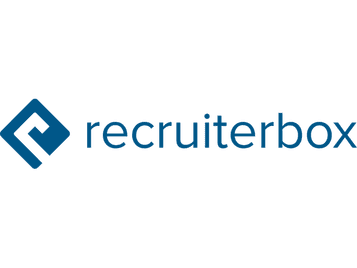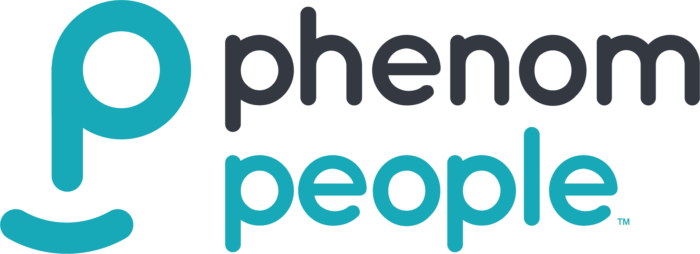Applicant Tracking Systems (ATS) have become essential tools for businesses of all sizes—especially in tech-heavy industries. The right ATS software can streamline recruiting, enhance collaboration, improve data management, and significantly boost hiring efficiency. With numerous options available, selecting the best ATS tailored to your needs is essential.
In this guide, we’ll explore:
[ez-toc]
What is an Applicant Tracking System (ATS)?
Are you struggling with your hiring process? An ATS (Applicant Tracking System) can revolutionize your recruitment by automating tasks and enhancing efficiency.
An ATS is a candidate tracking system designed to automate the hiring process by organizing and managing candidate information, resumes, and interactions. Most ATS platforms help HR teams with:
- Candidate sourcing: Posting jobs across multiple platforms (job boards, social media) from one place (e.g. talent mining and candidate sourcing different talent pools).
- Resume screening: Automating resume evaluation by parsing resumes and highlighting candidates with the required qualifications.
- Applicant tracking: Tracking where each candidate is in the application process, from interview scheduling to feedback and offer management.
- Compliance: Ensuring the recruitment process aligns with labor laws (critical for large organizations).
- Analytics: Offering recruitment performance insights, like time-to-hire, cost-per-hire, and diversity metrics (check our People Analytics article for more).
Why do companies use ATS software?
- Efficiency and Time Savings: ATS automates many repetitive tasks like resume screening, allowing HR teams to focus on more strategic activities.
- Improved Candidate Experience: Some ATS systems streamline communication with job seekers, helping them stay engaged and informed.
- Collaboration: ATS allows multiple recruiters and hiring managers to collaborate on reviews, feedback, and decision-making without back-and-forth emails.
- Scalability: Whether you’re a startup hiring five employees or a large enterprise onboarding hundreds, ATS systems grow with your needs.
However, it’s not always a perfect solution, and there are other alternatives to consider.
Pros and Cons of ATS Recruitment Software
- Centralized Data: Store resumes, job postings (can be integrated to career page), and candidate communication in one place, making it easier to track and retrieve information.
- Automation: Automate time-consuming tasks such as resume parsing, open position postings, and interview scheduling.
- Data Insights: Analyze hiring metrics like time-to-hire, applicant demographics, and conversion rates to optimize recruitment strategies.
- Integration: Many ATS platforms integrate with other HR software like onboarding systems, CRM tools, and performance management systems.
- Compliance & Auditing: For large companies, an ATS ensures hiring processes remain compliant with labor laws, protecting from legal risks.
- Cost: High-quality ATS platforms can be expensive, with additional costs for other features include AI integration, candidate marketing, and advanced analytics.
- Complexity: Many ATS platforms are feature-rich but have a steep learning curve, requiring significant time to implement and train the hiring team.
- Limited Personalization: Automation can lead to a cookie-cutter candidate experience, leaving applicants feeling like they’re dealing with a robot.
- False Negatives in Screening: Over-reliance on keyword-based resume screening can cause strong candidates to be overlooked if their resumes don’t match specific criteria.
ATS vs Alternatives: Which is Right for Your Company?
While talent acquisition software is a powerful tool, it’s not always the best fit for every company. Depending on your business size, industry, and recruitment volume, alternatives like spreadsheet-based tracking, CRM systems, or outsourcing recruitment tasks might be better suited to your needs.
- Smaller businesses and startups may find the cost and complexity of a full-featured ATS overwhelming, especially if they hire sporadically or have a small team.
- Medium-sized companies can leverage ATS to boost efficiency as their recruitment needs increase, but they should balance cost with features.
- Large enterprises require more robust ATS solutions to handle high volumes of applicants, compliance, and data analysis.
Let’s break down the key factors companies should consider when choosing the right solution.
How to Choose the Best ATS for Your Business
1. Company Size & Budget
Small businesses: Look for low-cost, user-friendly ATS solutions that offer essential features like job boards, tracking candidates, and basic analytics. Avoid platforms that charge by the number of job postings, as these fees can add up.
Medium-sized businesses: Consider investing in ATS software that offers some advanced features (like workflow automation or basic AI tools) but doesn’t break the bank. Opt for platforms that are easy to scale as your business grows.
Enterprises: For large organizations with global reach or multiple locations, an ATS with strong compliance, advanced reporting, and extensive integration capabilities is essential. Be prepared for higher costs, but these platforms can save considerable time and resources in the long run.
2. Recruitment Needs
If you’re hiring software developers or other tech roles, you’ll need an ATS that integrates with developer-friendly job boards (e.g., Stack Overflow) and evaluates tech skills efficiently.
For general recruitment, an ATS with strong resume parsing, interview scheduling, and candidate communication features may be all you need.
3. Integration with Other Tools
Make sure your ATS integrates with existing HR tools (like payroll, performance management) to ensure seamless data flow and avoid redundant data entry.
4. Customization & Flexibility
For companies with specific hiring workflows, find an ATS that allows customization options. For example, tech startups may want to integrate coding tests into the application process, while larger companies might prioritize compliance checks.
Alternatives to ATS
- Spreadsheet-based tracking: While less sophisticated than ATS, spreadsheets can be used to track candidates and manage the recruitment process.
- CRM systems: Customer Relationship Management (CRM) systems can be adapted for recruitment purposes, offering features like contact management, lead tracking, and reporting.
- Applicant tracking software (ATS): While not a direct alternative, consider using a smaller, more affordable ATS designed for startups or small businesses.
- Recruitment outsourcing: Outsource your recruitment process to a third-party agency.
What Are the Top Applicant Tracking Systems Out There?
Greenhouse
Greenhouse is a comprehensive ATS platform tailored for mid-sized to large tech companies. It is known for its robust analytics, integrations, and scalability, making it ideal for companies managing a large hiring volume.
- Best for: Mid-sized to large tech companies
- Key Features:
- Candidate sourcing and job ads across multiple platforms
- Interview scheduling and offer management
- Robust reporting and analytics to track hiring performance
- Strong integration capabilities with popular tools like LinkedIn, Slack, and HR systems
- Pros:
- Detailed, customizable analytics to track recruitment metrics
- Scalable for teams that need to grow quickly
- Strong integration options that streamline workflows
- Cons:
- Complex setup and higher learning curve for new users
- Expensive, especially for smaller businesses
- Pricing: Starts at $6,000/year
Lever

Lever is an AI-powered ATS designed to automate and improve many aspects of the recruitment process. It is best suited for tech companies that prioritize efficiency and candidate experience.
- Best for: Tech companies that prioritize automation and efficiency
- Key Features:
- AI-powered candidate sourcing and nurturing
- Intuitive user interface with drag-and-drop workflows
- Built-in CRM for long-term candidate relationship management
- Integrations with popular tools like Slack and G Suite
- Pros:
- Advanced AI features for automating repetitive tasks
- Excellent for improving the candidate experience
- User-friendly interface and minimal setup time
- Cons:
- Limited customization options for complex hiring processes
- Lacks in-depth reporting tools compared to competitors
- Pricing: Starts at $4,000/year
Workable

Workable is an easy-to-use, affordable ATS aimed at small to medium-sized businesses. It provides essential recruiting features at a price that won’t break the bank, making it perfect for startups or small teams with limited hiring needs.
- Best for: Startups and small tech companies
- Key Features:
- Candidate sourcing, resume parsing, and interview scheduling
- Job posting to multiple job boards with one click
- Basic reporting and analytics to track hiring performance
- Pros:
- Affordable pricing for smaller companies
- Intuitive user-friendly interface with drag-and-drop workflows
- Quick to implement with minimal training required
- Cons:
- Limited customization options for more complex hiring needs
- Lacks some advanced features found in larger ATS solutions
- Pricing: Starts at $99/month
RecruiterBox

RecruiterBox is a cloud-based ATS that emphasizes collaboration and candidate experience. It is ideal for tech companies that prioritize teamwork in hiring and need a customizable system to match their workflows.
- Best for: Tech companies that prioritize collaboration
- Key Features:
- Customizable workflows to fit different recruitment needs
- Collaboration tools for team-based hiring decisions
- Integration with popular HR tools and job boards
- Pros:
- Strong collaboration features that allow multiple team members to participate in hiring decisions
- Flexible workflows for tailoring the recruitment process
- Provides a good candidate experience
- Cons:
- Basic reporting features compared to competitors
- Lacks advanced AI capabilities
- Pricing: Custom pricing based on the number of users
Jobvite
![]()
Jobvite is an ATS platform focused on social recruiting and mobile optimization, making it a great fit for companies that heavily rely on social media for sourcing candidates.
- Best for: Tech companies with an active social media presence
- Key Features:
- Social recruiting features that integrate with social media platforms
- Mobile-friendly interface for on-the-go recruiting
- Built-in CRM and marketing tools to nurture candidates
- Pros:
- Excellent for social media-based recruiting
- Mobile-optimized interface allows for easier management of candidates
- Great for companies looking to engage candidates through multiple channels
- Cons:
- Higher cost for advanced features
- Complex integration with some third-party tools
- Pricing: Starts at $500/month
JazzHR

JazzHR is an affordable, user-friendly ATS designed for small to medium-sized businesses. It offers essential ATS features at a very competitive price, making it a good option for startups or small tech companies.
- Best for: Startups and small tech companies
- Key Features:
- Job posting, candidate tracking, and resume parsing
- Interview scheduling and feedback collection
- Simple reporting and analytics
- Pros:
- Very affordable pricing
- Easy to use, especially for small teams with limited recruiting needs
- Quick to set up and implement
- Cons:
- Lacks advanced features needed by larger teams or complex workflows
- Limited scalability for growing companies
- Pricing: Starts at $39/month
Zoho Recruit

Zoho Recruit is a comprehensive ATS platform that integrates seamlessly with the broader Zoho suite of business applications. It’s a great fit for companies already using Zoho’s ecosystem of tools.
- Best for: Companies using other Zoho products
- Key Features:
- Seamless integration with Zoho’s CRM, HR, and other business tools
- Customizable recruitment workflows
- Candidate experience management tools
- Pros:
- Excellent integration with Zoho’s business suite
- Customizable workflows to fit different hiring needs
- Affordable pricing
- Cons:
- Steeper learning curve for users not already familiar with Zoho’s products
- Limited third-party integrations compared to some competitors
- Pricing: Starts at $25/month
Taleo

Taleo is a large-scale ATS platform designed for enterprise-level organizations with complex recruitment needs. It is highly customizable and offers a wide range of advanced features for large companies.
- Best for: Large tech companies with complex recruitment needs
- Key Features:
- Advanced features for large-scale recruitment, including compliance and auditing tools
- Integration with other Oracle HR products
- Detailed analytics and reporting
- Pros:
- Highly scalable for enterprise-level hiring
- Strong analytics and compliance features
- Excellent for managing high-volume recruitment
- Cons:
- Expensive and typically requires custom pricing
- Complex user interface, which may require extensive training
- Slow customer support
- Pricing: Custom pricing (typically high)
Phenom People

Phenom People is an AI-powered ATS with a focus on improving candidate engagement and experience. It uses advanced AI tools to personalize the recruitment journey, making it ideal for tech companies that prioritize the candidate experience.
- Best for: Tech companies prioritizing candidate engagement and AI
- Key Features:
- AI-powered tools to personalize candidate experiences
- Detailed analytics to measure recruitment performance
- Candidate relationship management (CRM) tools
- Pros:
- Excellent for providing personalized candidate experiences
- Strong AI features for automating recruitment tasks
- Robust analytics and reporting tools
- Cons:
- Expensive, with custom pricing depending on company size
- May be overkill for smaller companies with simpler hiring processes
- Pricing: Custom pricing based on usage and company size
SmartRecruiters
SmartRecruiters is a cloud-based ATS that focuses on automation and efficiency. It offers strong integration options and automation features, making it ideal for tech companies with high-volume recruitment needs.
- Best for: Tech companies prioritizing automation and efficiency
- Key Features:
- Automation tools for job postings, candidate tracking, and communication
- Integration with popular third-party tools
- Candidate experience management features
- Pros:
- Great for automating repetitive tasks
- Integrates well with third-party tools like LinkedIn and Slack
- Strong candidate experience features
- Cons:
- Lacks some customization options for more complex workflows
- Can get expensive with add-ons and additional features
- Pricing: Free version available; paid plans start at $10,000/year
Matching the Best ATS Tools for Different Business Needs
When selecting an ATS or alternative, consider the following factors:
- Company size and budget: Evaluate your company’s size and budget to determine the most suitable option.
- Recruitment needs: Assess your specific recruitment needs, such as the volume of candidates, complexity of the hiring process, and integration requirements.
- Features and functionality: Compare the features offered by different tools to ensure they meet your specific needs.
- Ease of use: Choose a tool that is user-friendly and easy to learn.
- Cost-benefit analysis: Weigh the costs and benefits of each option to determine the best investment for your company.
Best ATS for Small Businesses
Unique Needs of Small Businesses:
- Limited hiring budgets
- Need for simple, user-friendly tools
- Importance of flexibility and scalability as the company grows
Top Picks:
- JazzHR
Best for: Startups and small teams looking for affordable solutions
Pricing: Starts at $39/month
Why JazzHR?
JazzHR offers an easy-to-use platform, essential features, and affordable pricing, making it perfect for small businesses. The simple interface allows small teams to efficiently track applicants, and its collaborative tools enhance team communication during hiring. - Zoho Recruit
Best for: Companies using the Zoho suite of business tools
Pricing: Starts at $25/month
Why Zoho Recruit?
With strong integration into the broader Zoho ecosystem, Zoho Recruit is great for businesses already using Zoho products. It offers customizable workflows and easy scalability, making it perfect for small but fast-growing teams.
Best ATS for Medium-Sized Companies
Unique Needs of Medium-Sized Companies:
- A growing workforce, increased recruitment volume
- More complex hiring processes
- Stronger need for data analytics and reporting features
Top Picks:
- Greenhouse
Best for: Tech companies with growing hiring needs
Pricing: Starts at $6,000/year
Why Greenhouse?
Greenhouse offers robust candidate sourcing tools, interview scheduling, and analytics, making it ideal for mid-sized companies with complex hiring pipelines. Its scalability and customization options cater to the increasing needs of expanding teams.
Workable
Best for: Businesses with moderate hiring demands
Pricing: Starts at $99/month
Why Workable?
Workable combines an easy-to-use interface with essential recruitment features, like candidate sourcing and tracking. It’s an affordable solution for mid-sized businesses that need a balance between cost and functionality.
Best ATS for Large Enterprises
Unique Needs of Large Enterprises:
- High-volume recruiting, often across multiple regions
- Strong integration with HR and other internal systems
- Advanced analytics and AI-driven hiring tools
Top Picks:
- Taleo (by Oracle)
Best for: Enterprise-level organizations
Pricing: Custom pricing
Why Taleo?
Taleo is built for large-scale hiring. It offers powerful analytics, advanced candidate tracking, and seamless integration with other Oracle HR products. For large companies handling hundreds of job openings at a time, Taleo’s robust capabilities make it a top choice. - Phenom People
Best for: Tech companies focused on AI and candidate experience
Pricing: Custom pricing
Why Phenom People?
Phenom People uses AI to personalize candidate experiences, improve engagement, and streamline the hiring process. It’s perfect for large organizations looking to enhance their employer brand and reduce time-to-hire.
Best ATS for Tech Companies vs. Non-Tech Companies
For Tech Companies:
Tech companies, especially those with software development teams, need ATS platforms that offer:
- Strong integrations with technical testing tools (e.g., Codility, HackerRank)
- AI-driven insights to speed up technical role recruitment
- Collaboration tools that allow hiring managers and team leads to work together
Top ATS Tools for Tech Companies:
- Lever (AI-driven, integrates with coding assessment platforms)
- Greenhouse (Advanced candidate management and tech recruiting features)
- SmartRecruiters (Automation and tech recruitment focus)
For Non-Tech Companies Hiring Tech Talent:
Even if your core business isn’t tech-focused, hiring software developers or IT professionals demands certain features:
- User-friendly tools for non-technical recruiters
- Flexible workflows to accommodate different hiring pipelines
Top ATS Tools for Non-Tech Companies with Software Teams:
- Jobvite (Simple social media recruiting tools for tech hires)
Workable (Affordable and efficient for non-tech teams hiring tech talent)
Final Recommendations
In the end, the best ATS for your business depends on your company size, budget, and specific recruitment needs. Whether you’re a startup hiring a handful of employees or a large enterprise managing thousands of applicants, there’s an ATS that can meet your needs. Consider your current and future recruitment challenges, and choose a tool that helps streamline the process while offering scalability as your company grows.
By selecting the right ATS, you can improve hiring efficiency, reduce administrative burden, and find the best talent to drive your business forward. But that isn’t enough.
While ATS platforms are invaluable tools for modern recruitment, they are only effective when paired with a solid hiring strategy. Without clear goals and an organized approach, even the best ATS can fall short of delivering the desired results. At Ubiminds, we specialize in tech talent acquisition across the Americas, helping companies of all sizes streamline their recruitment processes for success. Request a call today to explore the opportunities that await your organization!
<div class=”_form_87″></div><script src=”https://ubiminds33029.activehosted.com/f/embed.php?id=87″ charset=”utf-8″></script>
FAQ
Q: What features should I look for in an ATS tool?
A: Some essential features include candidate database management, job posting automation, applicant tracking, applicant screening, and integration with other HR systems.
Q: How much does an ATS tool cost?
A: The cost of an ATS tool varies depending on the size of your company, the features you need, and the vendor. Some offer tiered pricing plans or custom quotes.
Q: Can I integrate my ATS tool with other HR systems?
A: Yes, most ATS tools offer integration capabilities with other HR systems like applicant tracking systems, payroll systems, and onboarding platforms.
Q: How long does it take to implement an ATS tool?
A: The implementation time for an ATS tool can vary depending on the complexity of your existing systems and the chosen tool. It typically takes a few weeks to a few months.

International Marketing Leader, specialized in tech. Proud to have built marketing and business generation structures for some of the fastest-growing SaaS companies on both sides of the Atlantic (UK, DACH, Iberia, LatAm, and NorthAm). Big fan of motherhood, world music, marketing, and backpacking. A little bit nerdy too!


